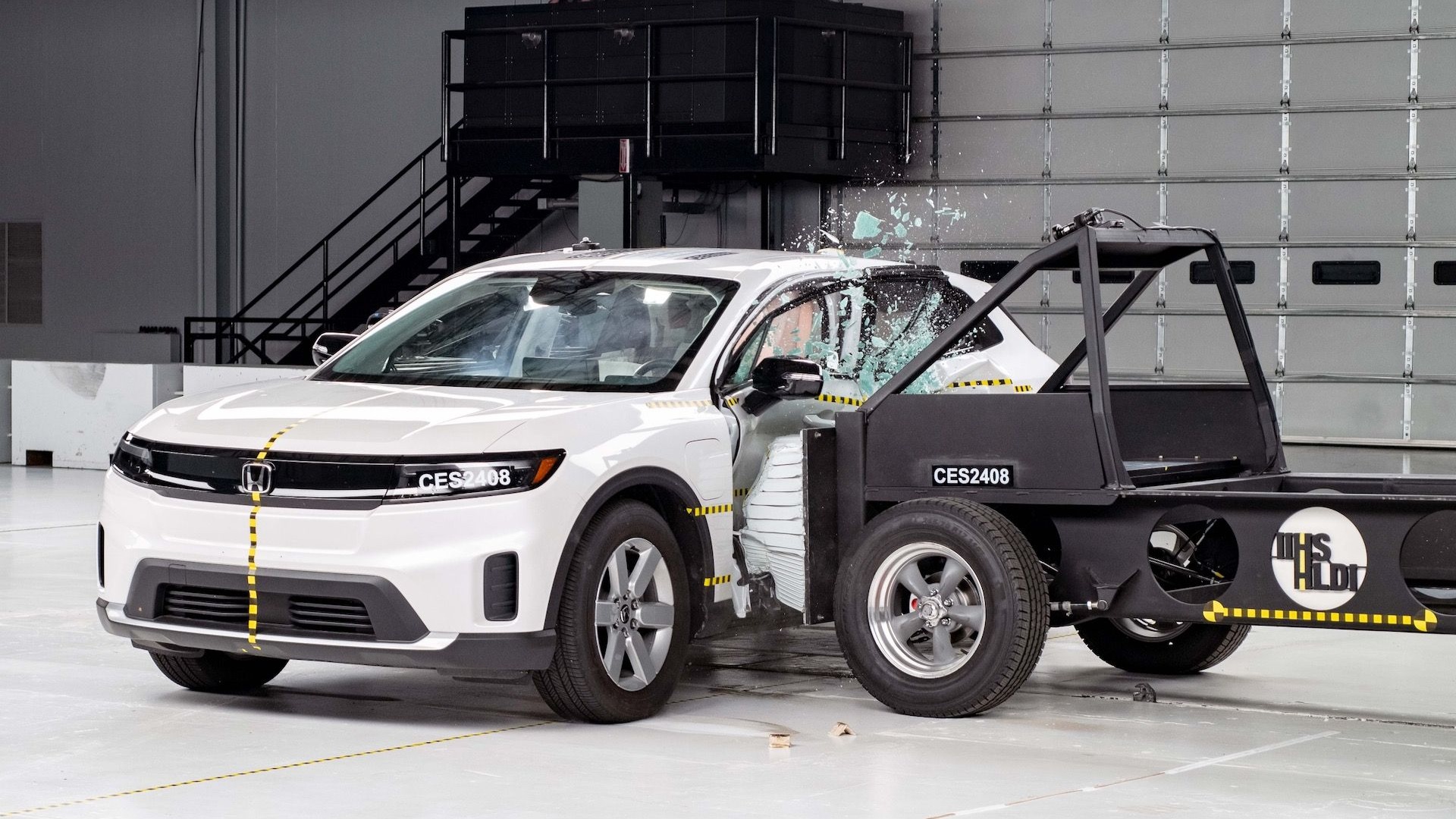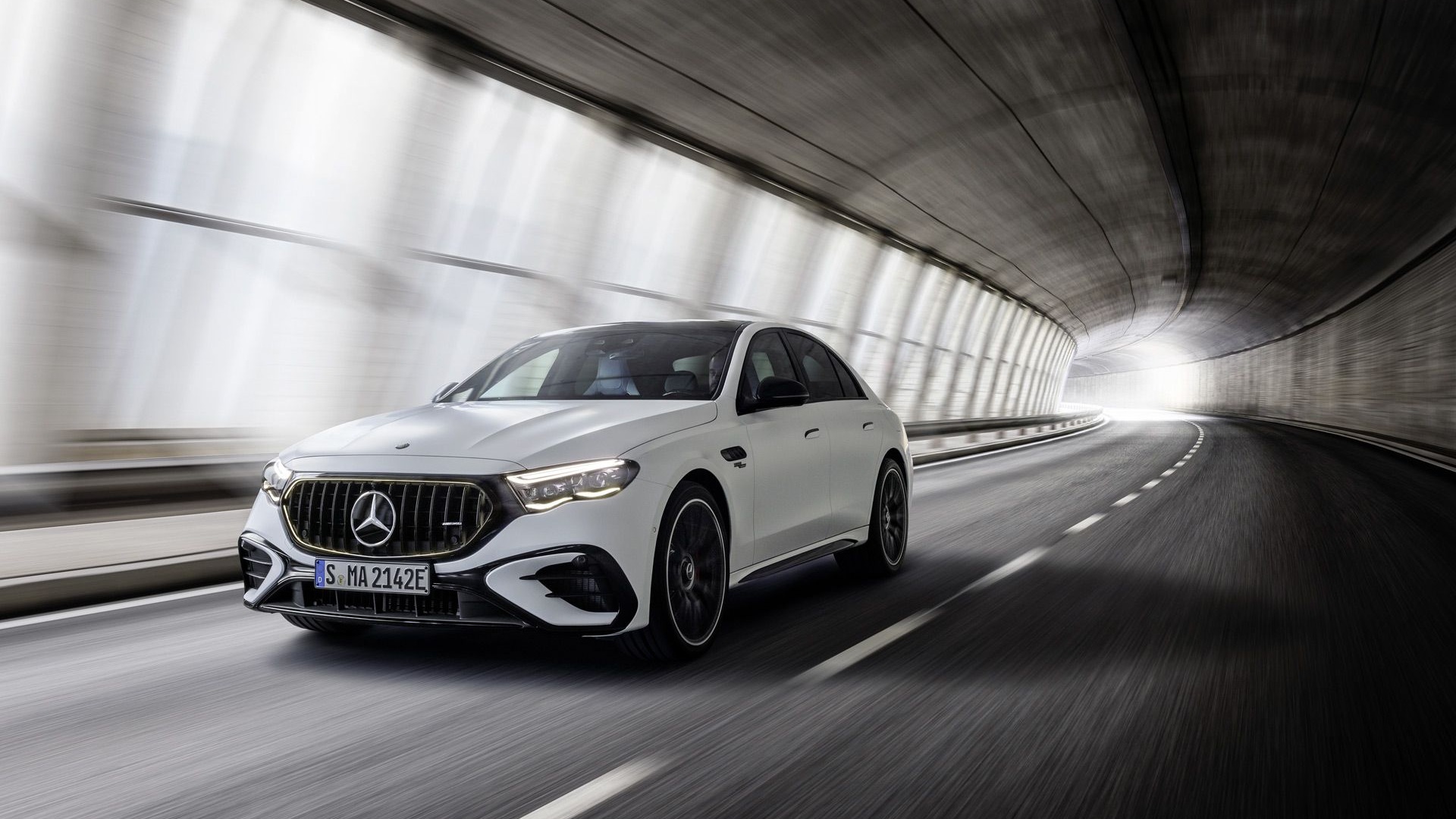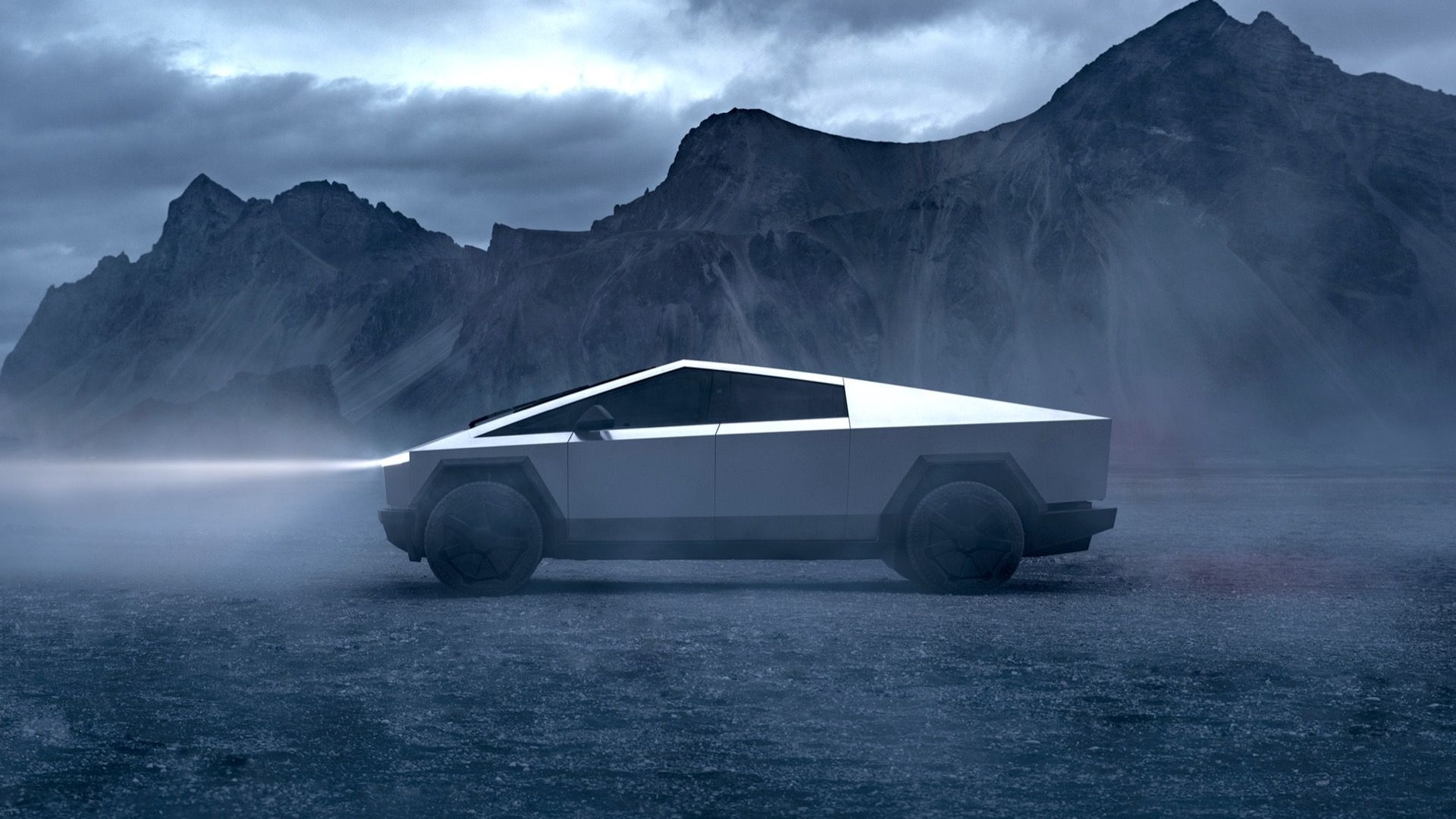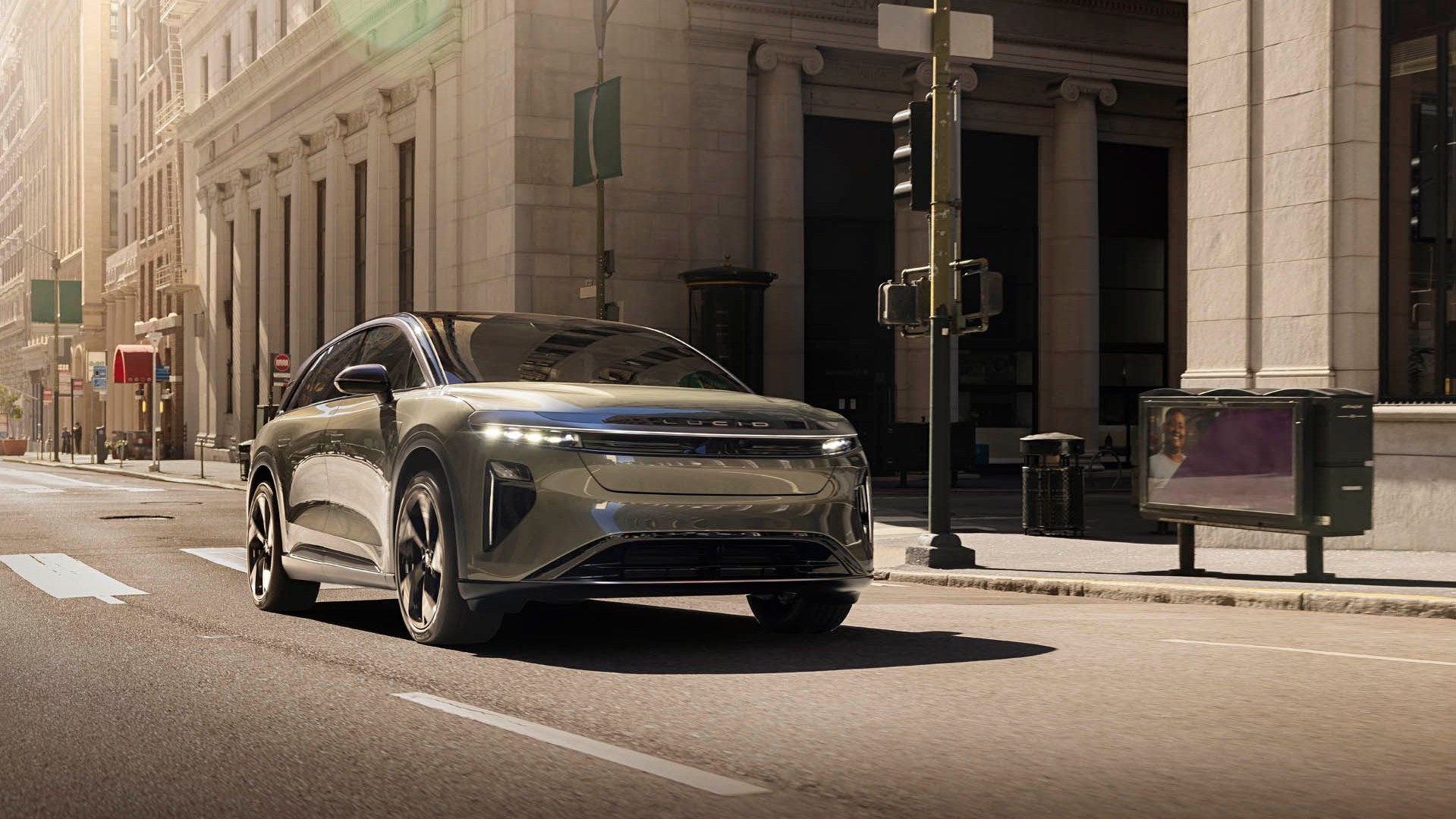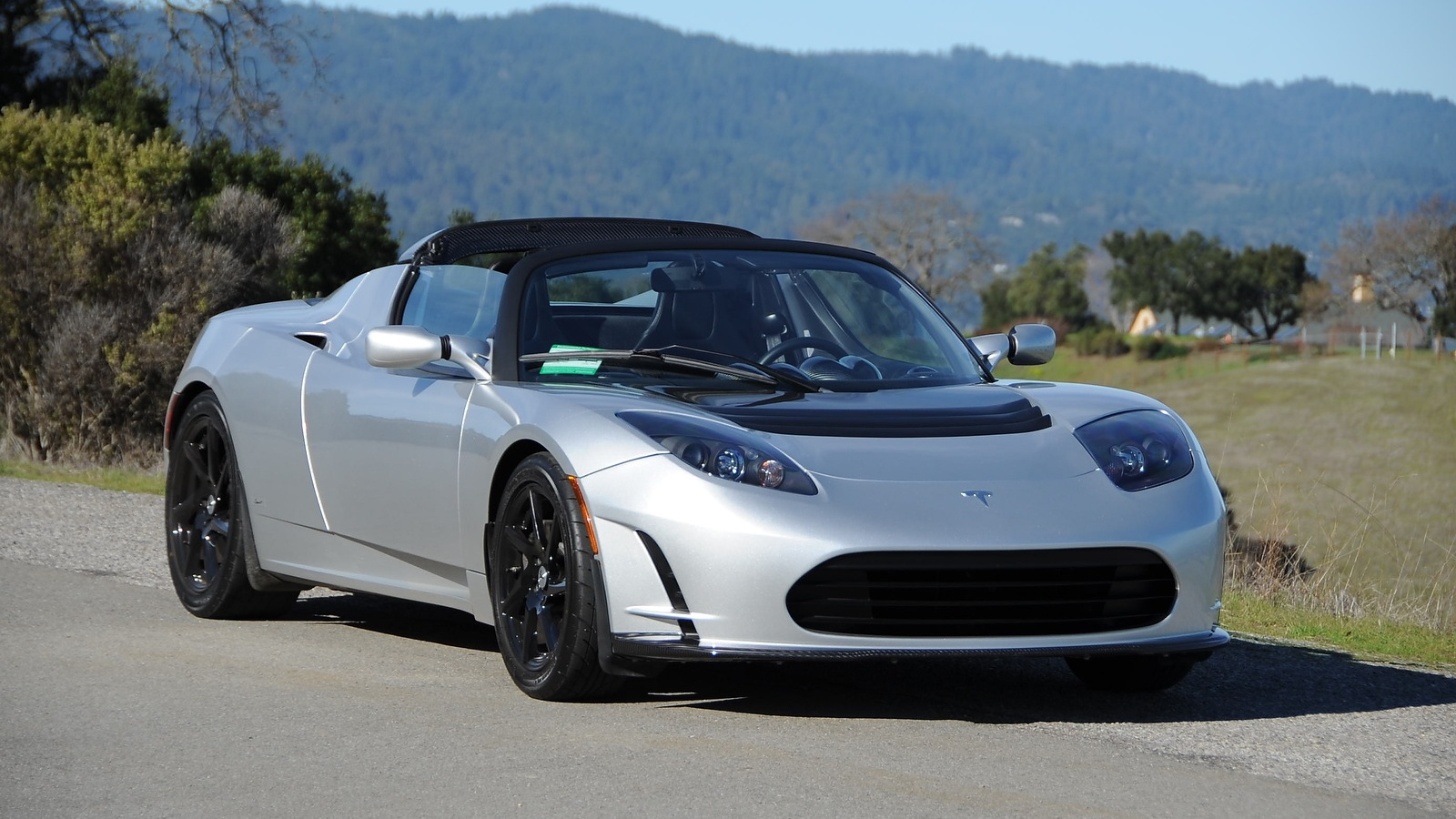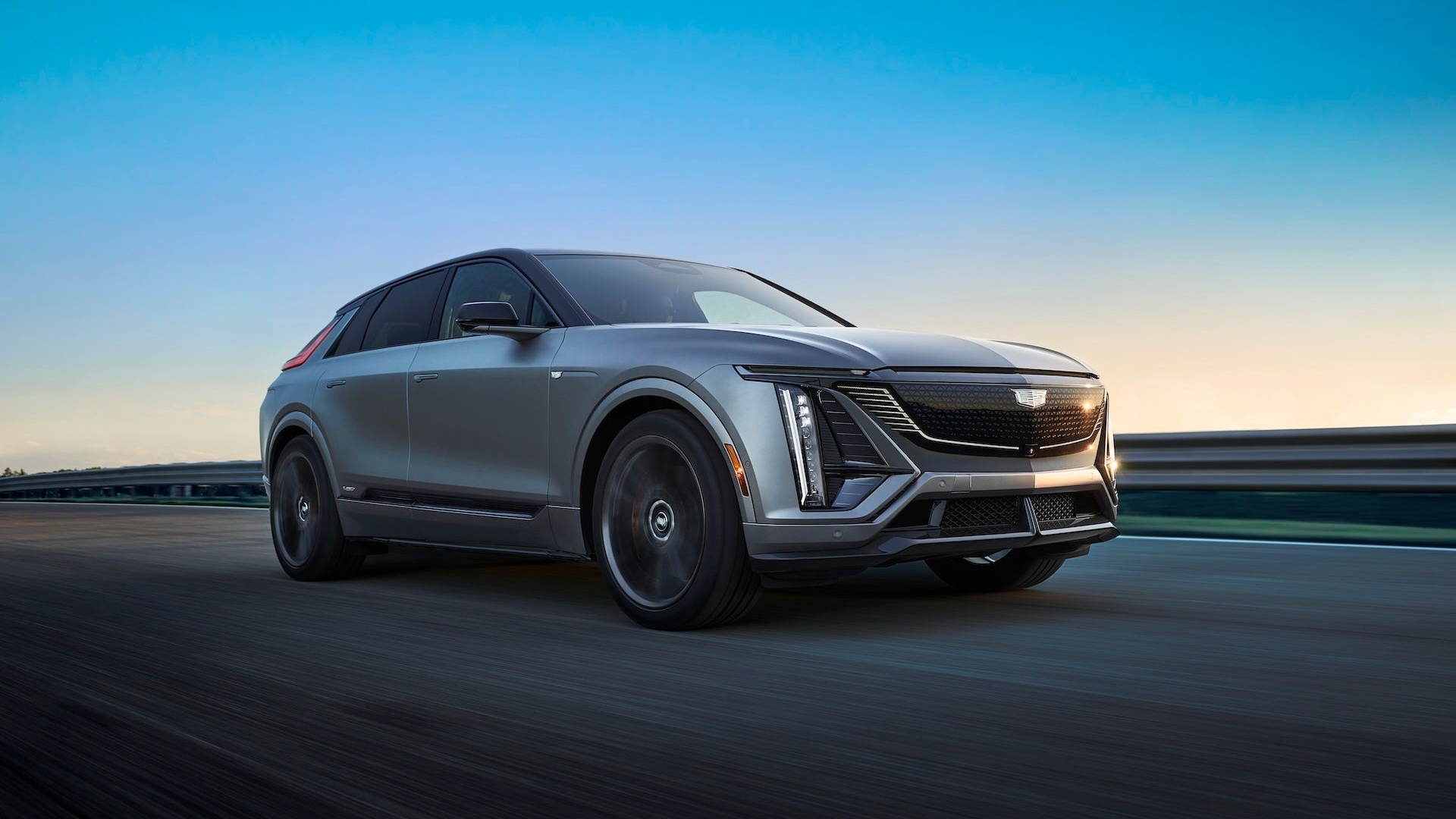Which CEO of a global automaker suggested that EVs may never top 30% of the global vehicle market?
Which EV from a U.S. automaker became the top-selling vehicle on the planet, electric or not?
This is our look back at the Week In Reverse—right here at Green Car Reports—for the week ending January 26, 2024.
Volkswagen has confirmed that “most” 2023-2024 ID.4 models qualify for the $7,500 EV tax credit, making it the first foreign automaker to get the nod under tightened sourcing rules. Models supplied with batteries from SK On—rather than LG—meet the requirements. It applies to about 80% of 2023 models and all upcoming 2024 models, so keep that in mind if you’re shopping for one.
Porsche priced its electric Macan SUV—simply badged as Macan 4 and Macan Turbo, at $80,450 and $106,950, respectively. Gasoline versions of the Macan will continue for at least a year in the U.S., and longer for some markets outside Europe and North America.
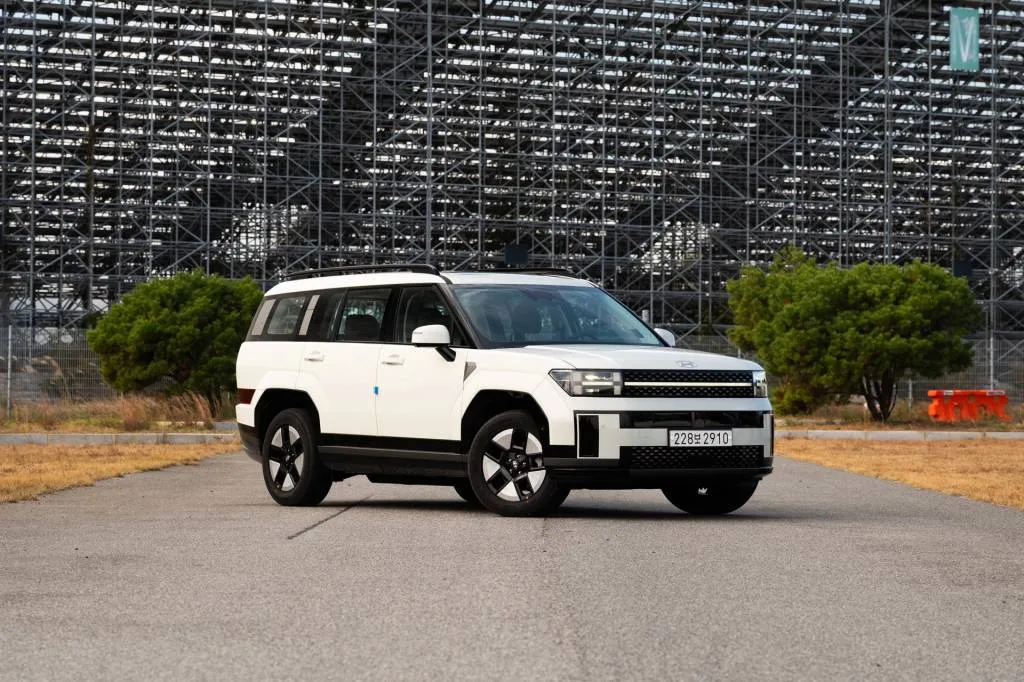
2024 Hyundai Santa Fe
For years, Toyota has aimed to offer hybrids across its model line, without much of a price premium, and we can see hints of the same strategy now alongside EVs, from Hyundai. In pricing for its 2024 Hyundai Santa Fe Hybrid three-row SUV released this week, for all but the base model the Hybrid version costs just $500 more—a difference that’s going to pay back very quickly in higher mpg.
Subaru has sped up DC fast-charging for the Solterra EV—especially in cold weather—while it also gets a driver-assist system good for low-speed congestion, new brake-regen paddles and, at last, a readout that tells you the battery percentage. All that said, the 2024 Subaru Solterra costs just $120 more than 2023.
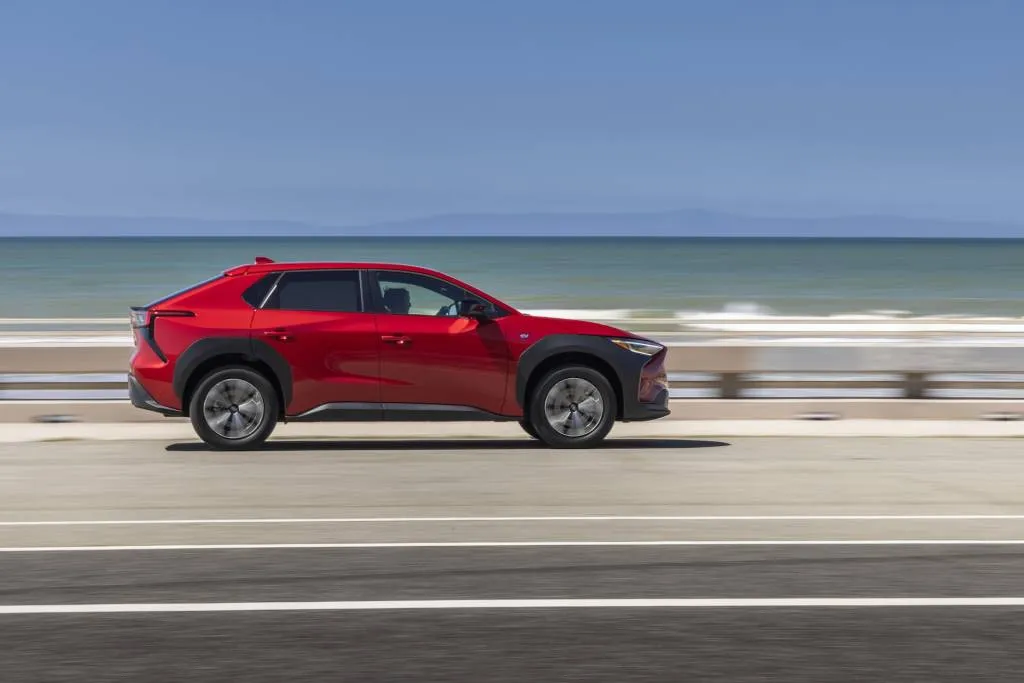
2024 Subaru Solterra
What does the Honda Prologue cost? Honda released 2024 Prologue pricing on Thursday, and it delivers on earlier claims that the electric SUV would start under $50,000. The Prologue costs $48,795 with a range of 296 miles, although a loaded version with all-wheel drive nearly reaches the $60,000 mark.
The 2024 Acura ZDX was also given a price. As the first fully electric model from the Honda luxury brand, with a recently announced starting price around $64,850, it unexpectedly costs thousands more than its close platform-mate, the Cadillac Lyriq. Will Acura’s own styling, tuning, and upscale feature choices make it worth the premium?
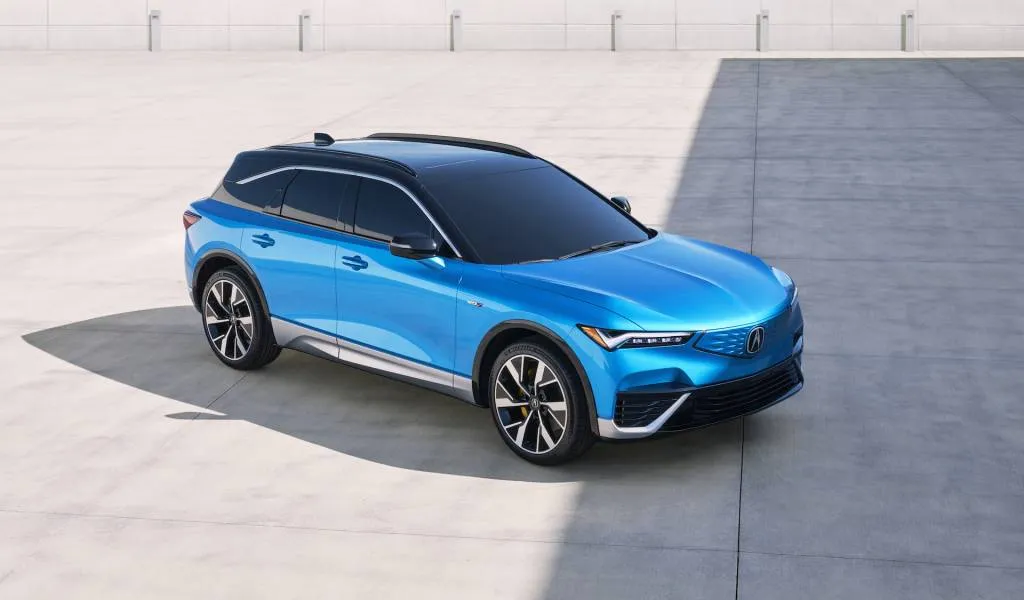
2024 Acura ZDX
Stellantis released more details about its STLA Large dedicated electric vehicle platform, laid out for 400 volts or 800 volts and set to underpin EVs from the Jeep Wagoneer S, a Dodge electric muscle car, and several other EVs from the global automaker’s various brands through the decade and beyond. Most noteworthy, perhaps: With battery packs spanning up to 118 kwh, it’s sticking to its claim of 500 miles of U.S. range—for sedans, on the platform.
The chairman of Toyota, Akio Toyoda, has never been big on EVs, or even embraced the idea that they’ll be the technology on the way to market dominance by the end of the decade. In new comments, the Toyota executive says EVs won’t top 30% of the market—perhaps ever. And he wants a new generation of gasoline engines.
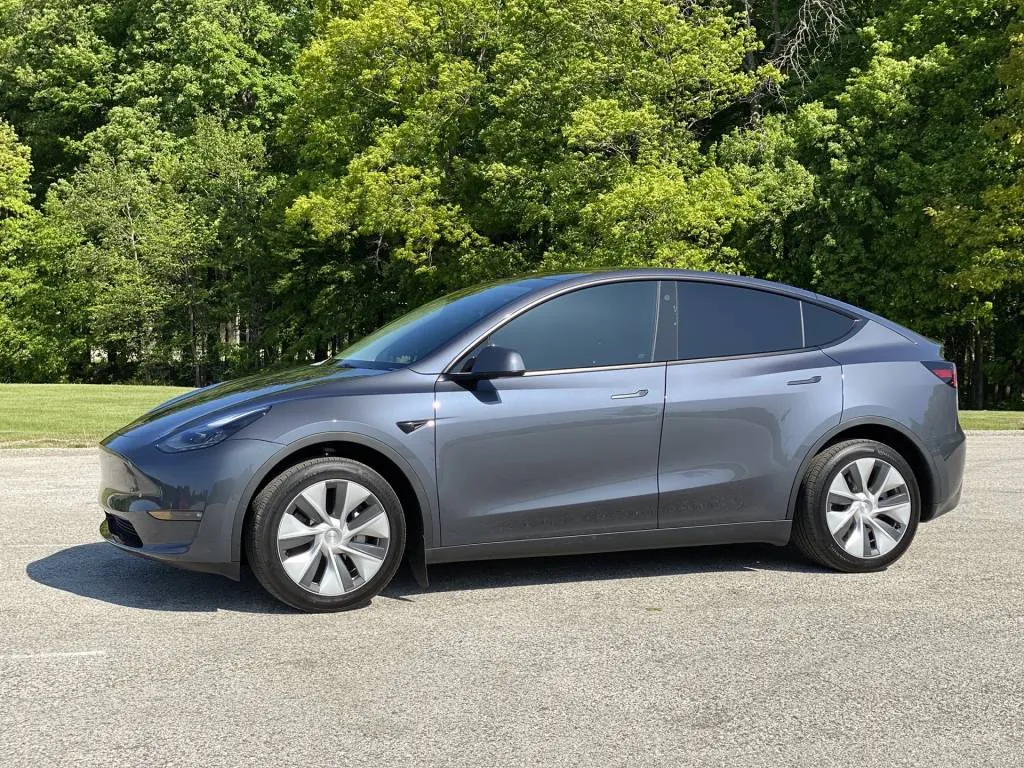
2023 Tesla Model Y
Meanwhile, with its quarterly and annual update, Tesla touted that the Model Y is the bestselling vehicle in the world. It delivered 1.2 million of them worldwide, from four different production locations. That would mean the Model Y topped the previous and longtime champ, the Toyota Corolla—which used to be made at Tesla’s Fremont, California, factory. And while CEO Elon Musk didn’t provide any more color to the $25,000 Tesla EV that had been reported earlier in the day, he did say that its next-generation, cost-cutting platform will be “next-level.”
At the opening of its second manufacturing stage in Arizona that will enable production of the upcoming Lucid Gravity electric SUV, Lucid teased its likely next product—a smaller electric SUV that appears to be a potential Model Y rival.
The Apple Car project has pivoted to a basic EV rather than the driverless, fully autonomous EV Apple originally envisioned. That doesn’t mean there isn’t room for Apple innovation, though, in aspects like the EV as a connected device or Apple’s potential “monocell” battery design.
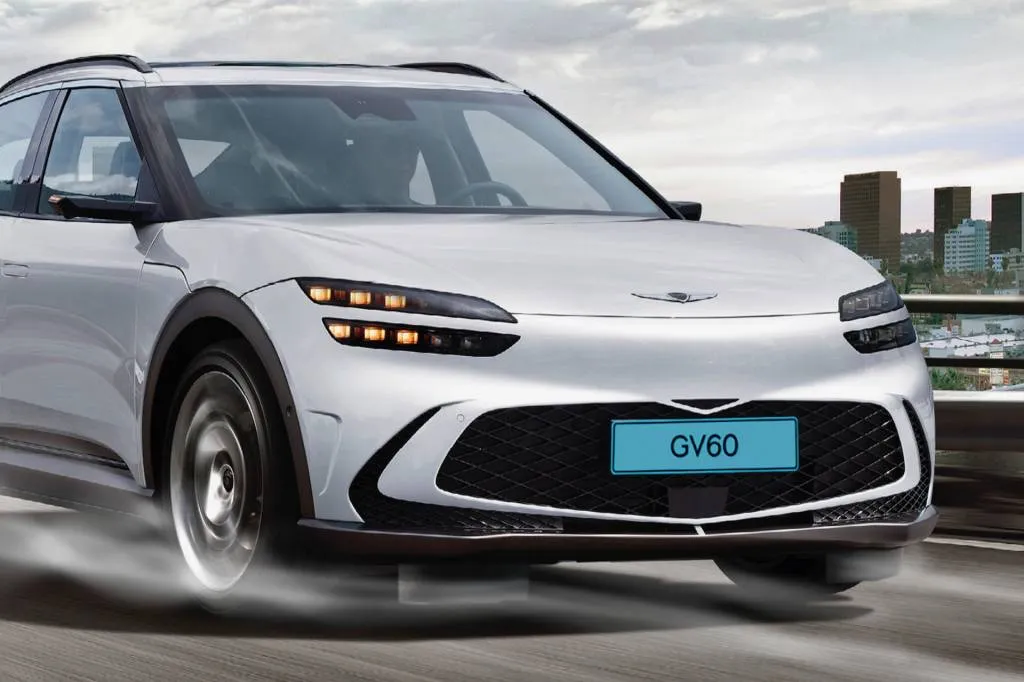
Genesis GV60 with Active Air Skirt
Hyundai and Kia boast that its active air skirt tech could add range to EVs—up to 4 miles of additional range by cutting drag at highway speeds. With it, a simple flap deploys downward in front of the front wheels, reducing the coefficient of drag, reducing underbody turbulence, and helping boost stability and traction.
The Treasury Department released guidance on which EV charging projects might qualify for the revived IRS 30C tax credit, which covers up to 30% of the cost of charger installations in “eligible census tracts.” Although the focus is on low-income and rural areas, the broad Biden-administration interpretation will make the charging subsidy available to areas with two-thirds of the U.S. population.
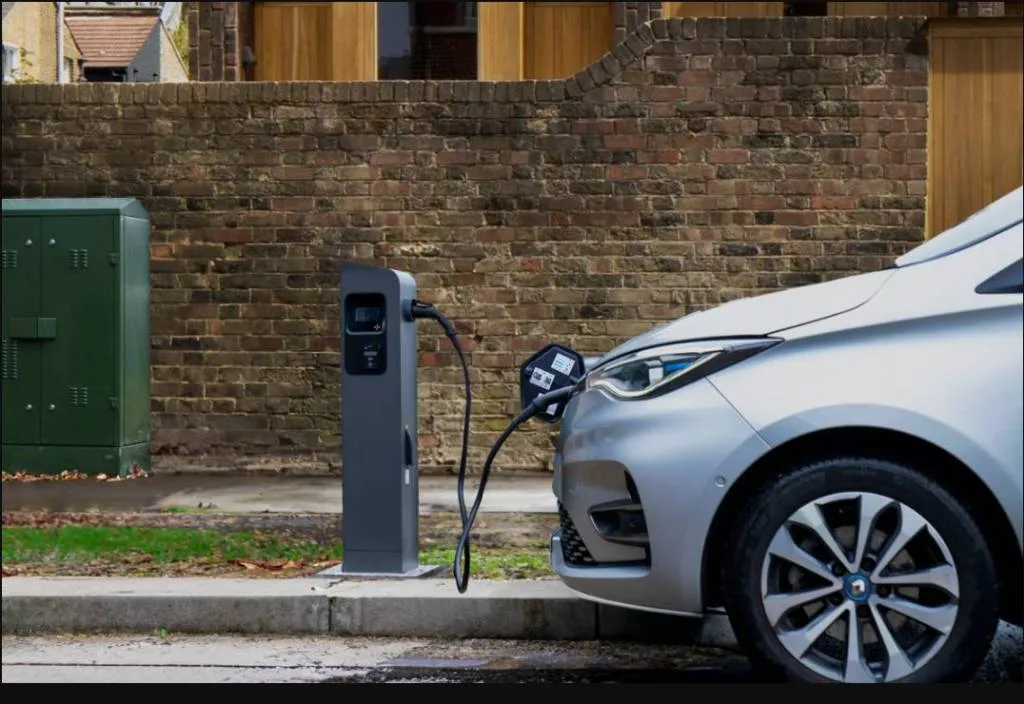
BT Group pilots EV chargers powered by street cabinets
In the U.K., the telecom firm BT Group is finding that phone-and-internet switchboxes can quite easily be retrofitted for EV charging—by diverting some of the 100 amps that many are allocated toward streetside EV charging. Could tapping into phone infrastructure for EV charging work in other markets like the U.S.?
And the California Air Resources Board (CARB) was set to rubber-stamp Electrify America’s proposed plan for the final 2.5-year cycle of its investment plan—sending $800 million to California and $1.2 million to the rest of the U.S., as mandated by its settlement for diesel pollution. Does it go far enough in addressing the reliability and uptime of the charging network?
_______________________________________



